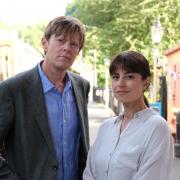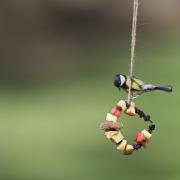Have an idea for a book? Writer Ewen MacDonald offers some top tips to putting pen to paper

‘I’d like to write a book’. As a writer, it’s a sentence I hear fairly often when revealing my job, usually with the added caveat: ‘if I ever get the time’. Well its beginning to look like for many of us, time is all we have, so why not make a start?
The current lockdown is expected to increase our reading time: before it closed Waterstone’s booksellers was reporting a 17 per cent increase in sales. And with the popularity of ebooks, it has never been so easy to curl up with a book. And this means a rise in demand for books - and for writers.
So where to start? The first thing you need is an idea. This may be a plot, a character, a situation, a period in history or simply a memoir. Before beginning to write, the book will need a carefully planned structure. I know writers who will just start to write and let a vague idea flow, but for most of us a detailed outline will help keep you on track. This could mean writing a precis for each chapter or describing a set of scenes. Character names and places (real or imagined) will probably need to be worked out in advance too. A working title may help, but that can come later when the book is finished. And even then, it is up for debate. A fellow writer’s agent once asked her to entirely change the title, hours before it went to publishers.
Once the writing begins, your outline may change as the story takes shape and you can add more detail. To write a book takes an enormous amount of discipline, the idea is the easy bit. It’s the daily slog of getting through your prescribed word count for the day (as many writers have). You should write daily to keep the momentum going and review your work on a regular basis to ensure it is all fresh in your mind.
Not everything you write first time is going to be a work of genius – sometimes you have to be brutal in editing the work, removing entire characters or even reworking plotlines. Get plenty of people to read your manuscript and give feedback as you go along. Grammar, sentence structure, tenses and accuracy are all vital – though less interesting – components.
For many publishers the style and voice of the writer is as important as the story itself. You will have a natural voice when you tell the story, but if you have never written before this may be something that has to develop.
The first line is as important as the last. American writer Elmore Leonard once famously said never begin a book with the weather, but anyone who has ever read George Orwell’s 1984 will know it’s all in the skill of the writer (‘It was a bright cold day in April, and the clocks were striking thirteen’). Memorable opening lines are like the chorus of a song or a first impression: they stay with you.
Books can take many months to write and even longer to get published. Self-publishing e-books means the process can be speeded up and you could get a book on sale within months. But the downside is that without the marketing that comes with a traditional publisher, your book can be hard to find. It’s also vitally important that it is thoroughly checked before publishing.
If you are looking for feedback before it goes out to a publisher or agent, there are writer’s clubs all over the country. While many will meet in person – writing can be a lonely profession – there is plenty of chat and swapping of ideas and manuscripts via the web. Search writer’s clubs in your area on social media channels and ask for an invite.
Beware - not everyone is Hillary Mantel – research shows that the top ten per cent of writers take the lion’s share of the industry’s money. But it’s a great way to make a little extra income.
EWen MacDonald’s latest novel The Painter is available at Amazon and all good bookshops.
This story first appeared in Cornwall Life’s May 2020 issue.



























